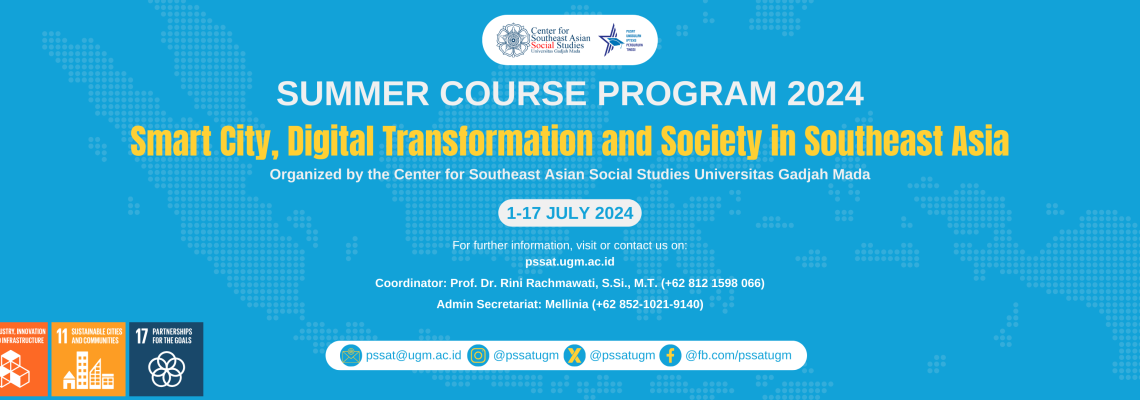SMART CITY, DIGITAL TRANSFORMATION AND SOCIETY IN SOUTHEAST ASIA SUMMER COURSE 2024 is an summer course held by Center for Southeast Asian Social Studies, Universitas Gadjah Mada, since 2024. This program is designed for students, researchers, practitioners, or professionals who are interested in Smart City, Digital Transformation and Society Southeast Asia.
Technological advancements have ushered in an era of disruption, catalyzing profound shifts across diverse spheres of life. Among the most notable impacts is the rise of smart cities, a global phenomenon aimed at leveraging cutting-edge technology for regional advancement and digital transformation. Smart cities are characterized by their focus on enhancing efficiency, sustainability, and the overall quality of urban life, integrating technology into various aspects of society. Yet, amidst rapid technological progress, resource constraints, and intricate social dynamics, the imperative for inclusive, interdisciplinary dialogue looms large. Such discourse is essential to ensure that smart city initiatives in Southeast Asia are not merely aligned with global trends, but also rooted in the unique needs and nuances of the region and its inhabitants, fostering societal well-being and equitable development.

